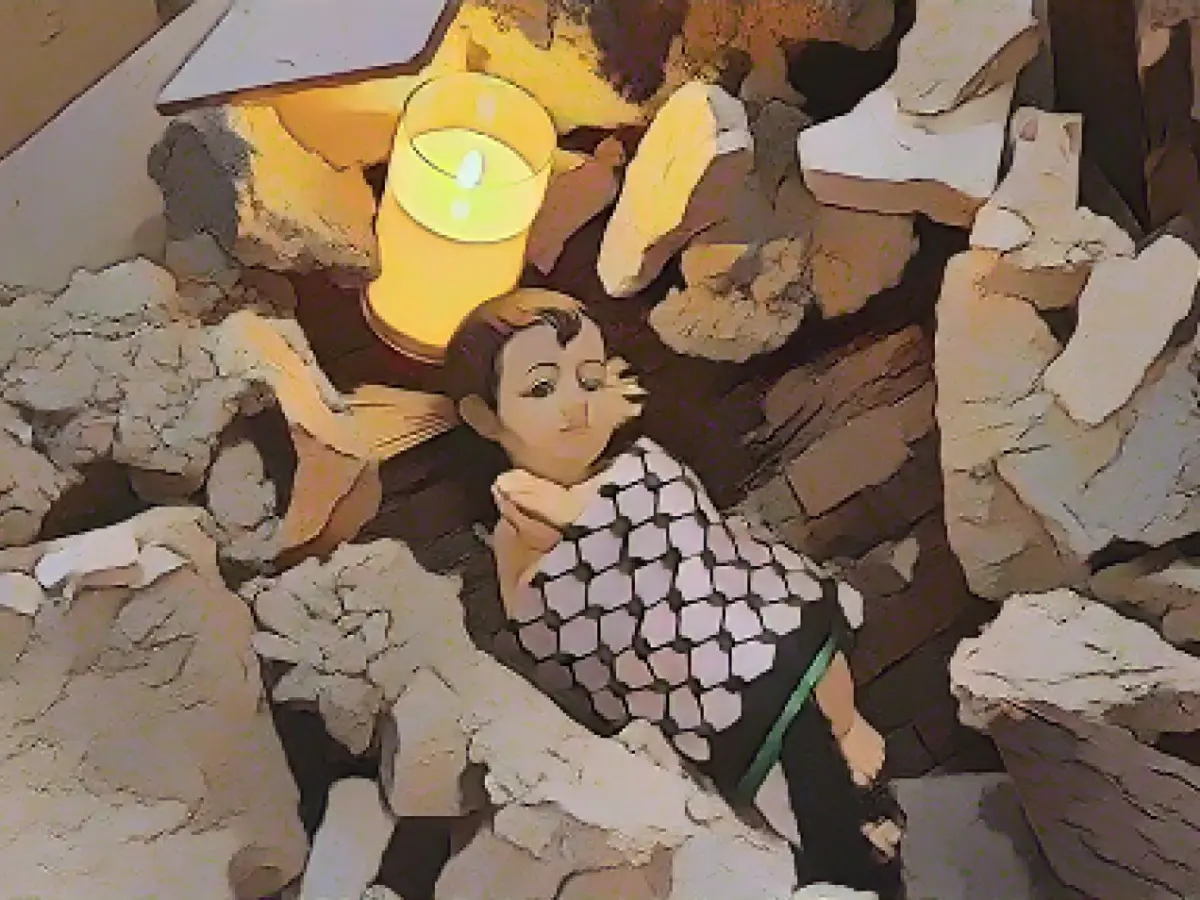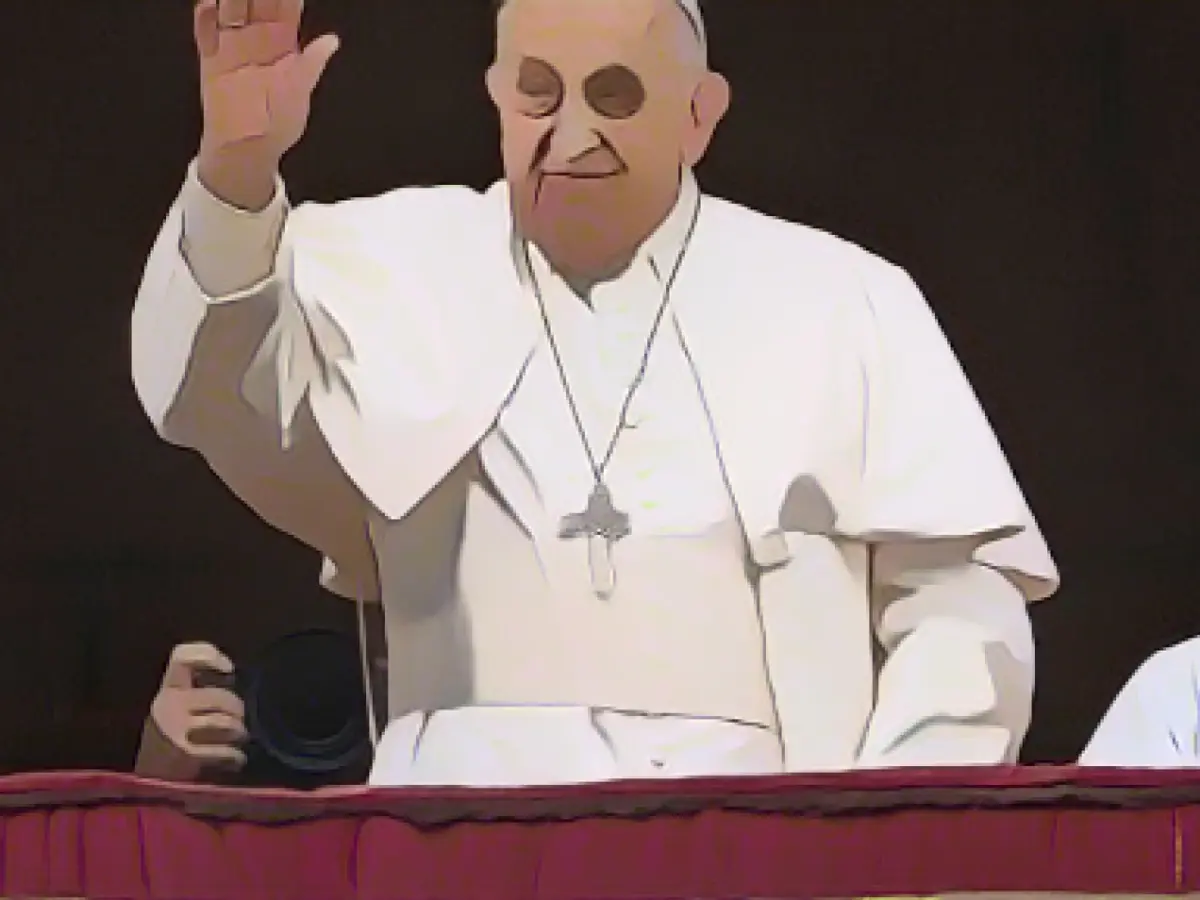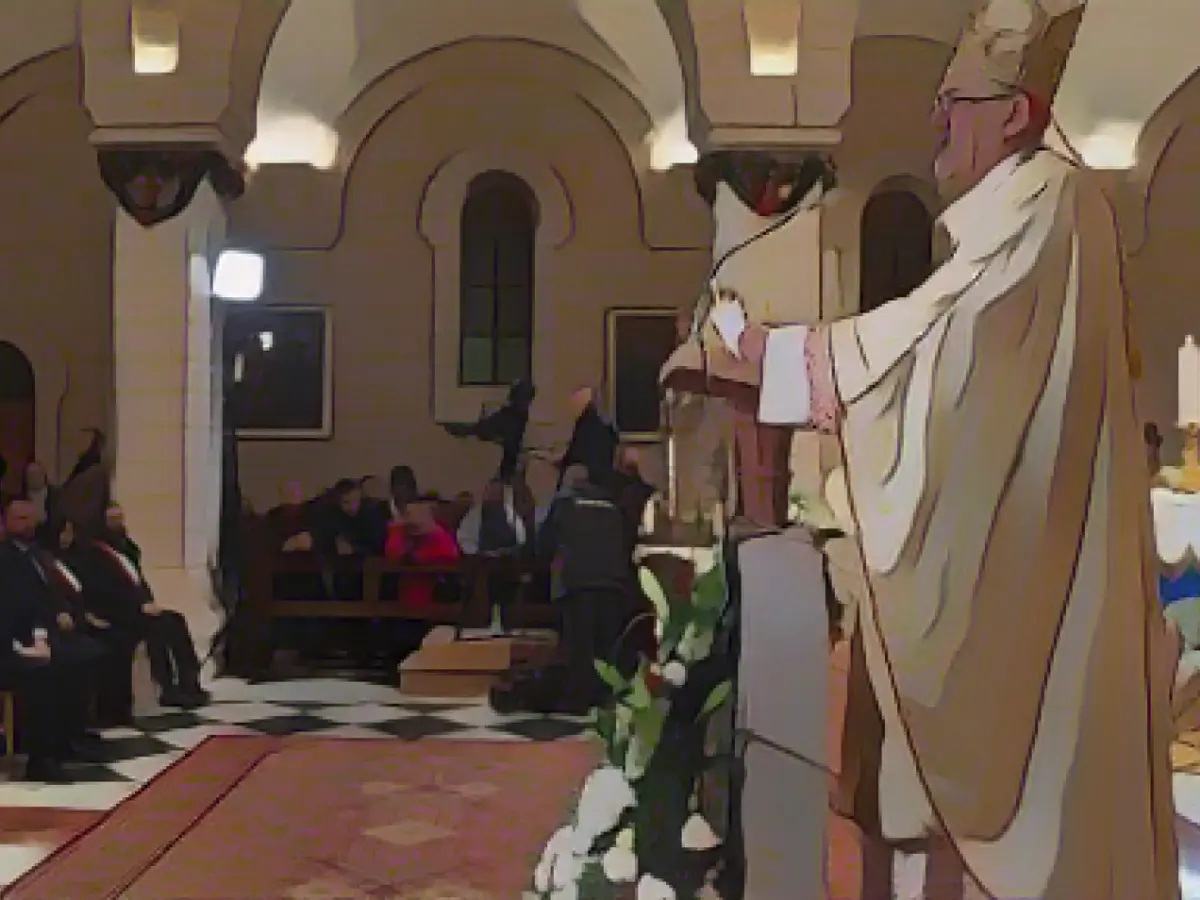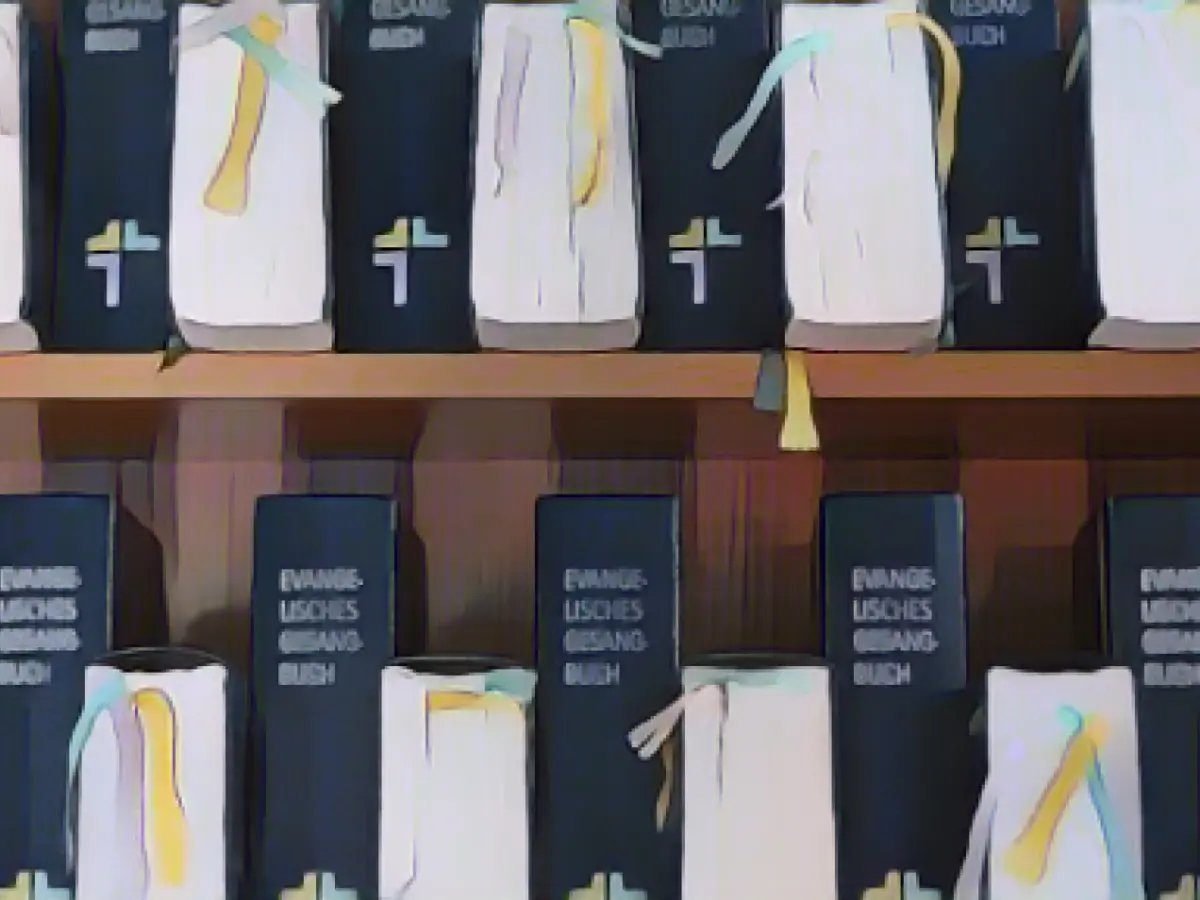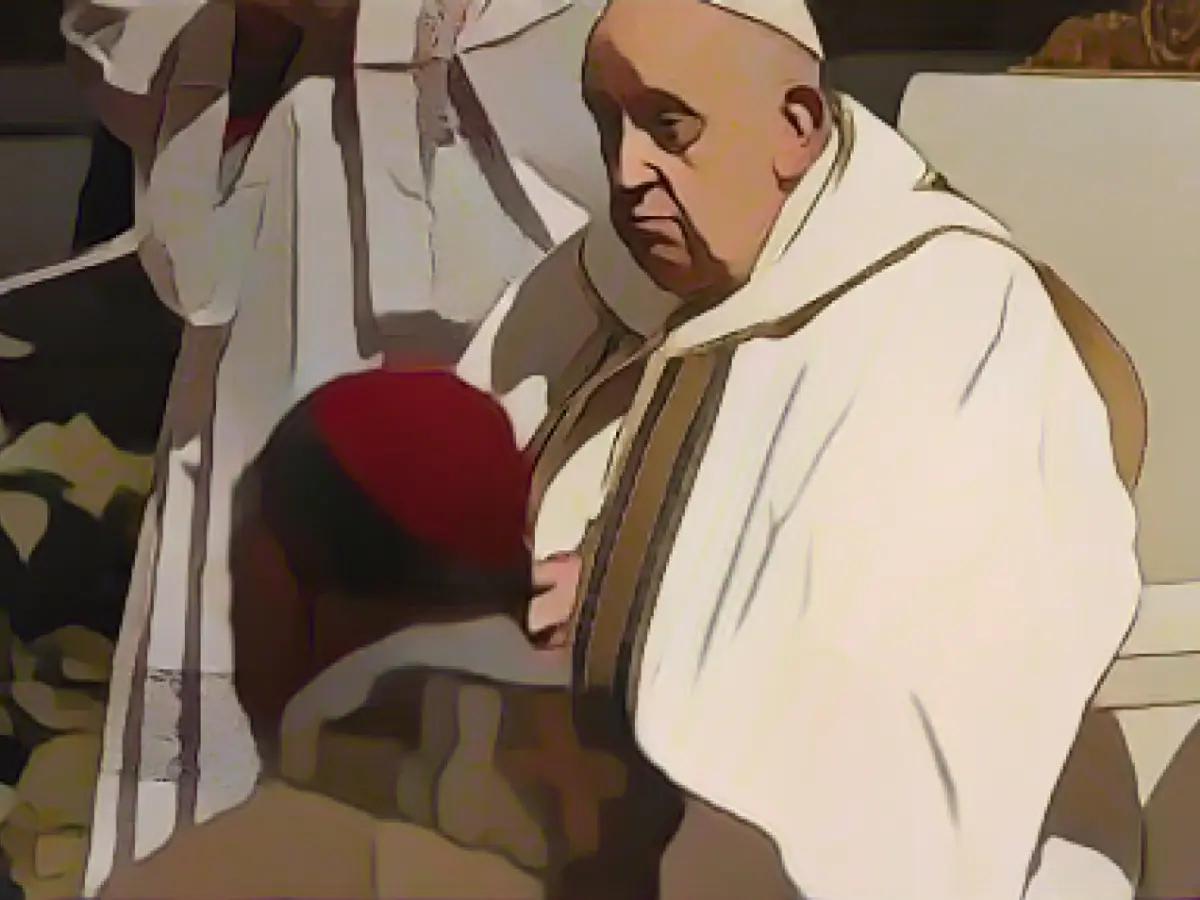Bethlehem Sad This Year: No Christmas Decorations Due to Middle East Conflict
In Bethlehem, the city known as the birthplace of Jesus, there's a different atmosphere this Christmas. Instead of the usual festive Christmas decorations, a pile of stones and wooden figures adorn the altar of the Evangelical Lutheran Christmas Church. The centerpiece is a doll wrapped in a Palestinian scarf, serving as a somber reminder of the children buried under the rubble in Gaza.
"The idea is that Christ was born among the oppressed and those who are suffering today," Pastor Munther Issak explained. The installation is replacing the traditional Christmas tree for 2022.
Bethlehem, located in the West Bank, is one of the holiest sites for Christians. Typically, the city would be bustling with tourists during the holiday season, but this year, the ongoing Middle East conflict has overshadowed the festivities.
Jerusalem's Missing Christmas Tree
Just a few days away from Jerusalem, the lack of Christmas cheer is even more noticeable. The traditionally towering Christmas tree standing in front of the Church of the Nativity during Advent is missing. The heads of churches in Jerusalem made the decision back in November to forgo any Christmas decorations due to the ongoing conflict.
While the midnight mass in Bethlehem is still scheduled to take place on Christmas Eve, with the Latin Patriarch of Jerusalem in attendance, it's not the joyful celebration it often is. "Bethlehem is sad this year," Issak said. "We are all sad and suffering because of what is happening in Gaza."
Middle East Conflict's Impact
The tragic conflict that began on October 7th this year is the source of this widespread sadness. Terrorists from the Islamist Hamas and other groups carried out the worst massacre in Israel's history near the border with Gaza, resulting in over 1200 fatalities.
Israel retaliated with massive air strikes and a ground offensive, leading to the deaths of over 18,000 people, according to the Islamist Hamas-controlled health authority.
The war has hit the Christian communities in the region hard. Bethlehem's residents live in constant fear that the conflict will spread, and the tourism industry, a significant source of income, is struggling due to limited access to the city due to Israeli army roadblocks.
Gaza Strip's Challenges
For Christians living in the Gaza Strip, the situation is the most difficult. Haitham Saba, a Christian resident of the Gaza Strip, used to celebrate Christmas with his family, but this year, he took shelter in a church to protect himself from Israeli air strikes.
Four Christians were among the 21 killed during the massacre in Israel on October 7th, and many more have lost their lives since the start of the conflict.
Impacts on Jerusalem
The Old City of Jerusalem is also quieter this Christmas season. Normally illuminated with Christmas trees, decorations, and masses of tourists, this year's celebrations are much more subdued.
"It's about an intimate Christmas, where the birth of Jesus Christ is at the center," Abbot Father Nicodemus Schnabel, of the Dormition Abbey in Jerusalem, explained. Whether or not the church will have a Christmas tree this year remains uncertain.
Still, the Dormition Abbey remains open for church services and concerts. People are celebrating Christmas in small, intimate groups, keeping the focus on religion and the central celebration of Jesus' birth.
Enrichment Insights
- Due to the Israel-Hamas conflict, Bethlehem and much of the Holy Land lack traditional Christmas decorations and celebrations, leaving a somber mood for the holiday season.
- The ongoing conflict has significantly affected daily life in Bethlehem, leading to protest marches and commemorations related to the Gaza conflict.
- Israel's political leaders, such as Itamar Ben-Gvir and Bezalel Smotrich, have voiced strong anti-Hamas sentiments and called for continued military action against the group.
- The overall threat posed by Islamist terrorism has also contributed to increased security concerns, creating a general sense of unease in the region.
- The conflict has made it difficult for local people, notably in Gaza, to celebrate Christmas as they usually would, resulting in a more subdued celebration and an atmosphere of sadness and mourning.
